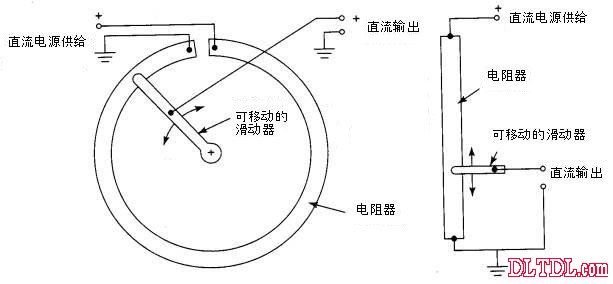Potentiometer
Potentiometers or voltmeters, also known as "pots" or variable resistors, are usually manufactured to maintain their original characteristics regardless of how long they are used. If used as a position sensor, the potentiometer can be a straight line. Or rotary position sensor. The potentiometer outputs a voltage value that is proportional to the position of the slider along the variable resistor. Because the temperature change, the wear and the dirt between the slider and the variable resistor cause a change in resistance, which affects the accuracy of the potentiometer, the potentiometer has too low accuracy. Due to the development of materials, especially in conductive plastics, potentiometers can maintain their original properties after a long time of use, while also improving their performance.
Disadvantages of the potentiometer:
1. Poor precision, can not be used as precision servo control (such as the main position feedback device of the robot arm.
2. When the brush moves, it stays in contact with the resistor and causes wear.
3. The potentiometer output is affected by the environment.
4. An analog to digital conversion device is required to provide a digital output to the controller (computer).

Zysen provides a range of waveguide fixed attenuators that operate from WR10 to WR650. They are available in multiple attenuation configurations 3 dB, 6 dB, 10 dB, 20 dB, 30 dB. These attenuators can handle an average power from 2 to 100 W. They are available with choke flange, cover flange, and grooved flange and are RoHS compliant.
Variable Rf Attenuator,Waveguide Fixed Attenuator,Fixed Attenuator In Microwave,Fixed And Variable Attenuator In Microwave
Chengdu Zysen Technology Co., Ltd. , https://www.zysenmw.com